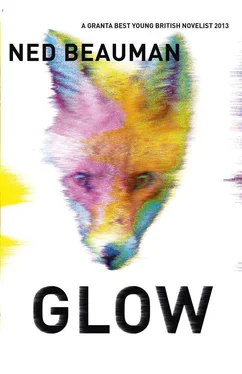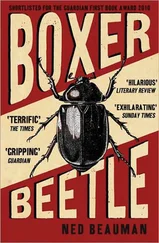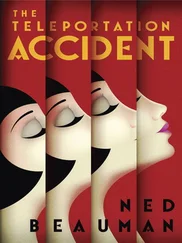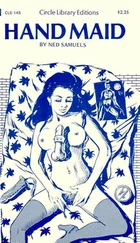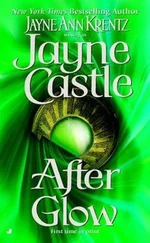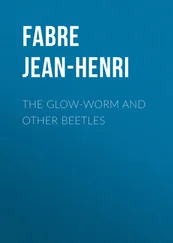He decides against a joke about the other condom. ‘Not really.’
‘How about a curry? I know a place near here.’
Raf sometimes thinks there is nothing in the whole world that makes him happier than spicy food soon after sex. ‘Yes,’ he says. ‘Wow, yes.’
4.31 p.m.
Raf was considering a prawn madras, but Cherish makes him turn to the end of the laminated menu, where there’s a page that says ‘burmese specialities’: tea-leaf salad, catfish soup, peanut curry, tamarind lamb, royal noodles.
‘Why do they have all this stuff?’
‘It’s a Burmese restaurant.’
‘I always thought it was Indian.’
But in fact there were clues that it wasn’t: in Raf’s experience, Indian restaurants in London, even the cheap ones, usually feel a bit like funeral homes with their tinted windows and dark carpets and low lighting, whereas this place just has linoleum floors and vinyl tablecloths and a few creased posters of Buddha on the walls. On the ledge by the door are two of those battery-powered Maneki Neko cats, the white one bigger than the gold one, so their metronomic paws move in and out of phase.
‘They cook Indian food here because people don’t know what Burmese is. But the staff are all Burmese.’
The waiter, a short guy with a goatee, brings over their beers and takes out his notebook. Earlier, Cherish greeted him as if they knew each other.
‘I don’t know what to have,’ says Raf.
‘You want a curry?’ says Cherish.
‘Yeah.’
She turns to the waiter and says something in what is presumably Burmese. He nods and goes back into the kitchen.
‘So that’s what you are too?’
‘Burmese? Kind of. At higher resolutions I’m half Danu, half American.’
‘Where did you grow up?’
‘In a mining town about halfway between Mandalay and the border into Yunnan.’
Cherish’s earliest memory, she tells Raf as they wait for their food, is the night her Uncle Chai came back to Gandayaw after six months away in the Concession and she burst into tears because he looked so much like a monster: eyes buried alive in the gloom of their own sockets, cheeks like slack grey tarpaulins, mouth turned down in a paresis of pure despair. But he promised her he was still her Uncle Chai and he was just very tired. Years later, she would find out why. At the Lacebark mine, you got two hours a day to eat and wash and pray and play cards, and the rest of the time you were either sleeping or working. But you didn’t work for fourteen hours and then sleep for eight, or even work for sixteen hours and then sleep for six. Instead, you worked for three and a quarter hours at a time, then unrolled your foam mattress wherever you stood and slept for forty-five minutes. That was the cycle. In total, you slept for only about four hours a day. When she was older, Cherish would learn that this was called polyphasic sleep, and it was used all over the world: the purpose was to maximise the productive hours of the workforce at the mine by teaching their bodies to skip straight to essential REM sleep, while also eliminating the inherent inefficiencies of the three-shift system. It was an agronomic approach to the brain, like some new method of crop rotation. And Uncle Chai had admitted that after a full month of sleeping only four continuous hours a night, he would have been passing out on his feet like a drunk, and yet even after six months of polyphasic sleep, he was still able to work. But polyphasic sleep gave you a tiredness of a different kind, a soggy tumour of exhaustion that grew heavier and heavier every sunrise, so that you could always feel it squeezed against your skull even if it hadn’t yet made you sick. After Uncle Chai returned that first time, he lay down inside the house and couldn’t be woken for more than a day, even to eat the welcome-back feast that Cherish’s mother had been planning for weeks.
When her mother was young, Gandayaw had still been a village of only a few dozen families, so isolated that many of the locals had never seen a pair of shoes, but in 1989 the Burmese government leased a vast area of copper and ruby deposits, half a million hectares of the Shan forest at the base of the hills, to an American company. Lacebark Mining built an office on the western edge of the Concession, and Gandayaw puffed up into a boom town out of the Wild West: from China and Thailand and India and other parts of Burma came traders, pedlars, fixers, translators, builders, electricians, plumbers, doctors, drivers, hoteliers, cooks, missionaries, musicians, hairdressers, tattooists, bodyguards, extortionists, confidence tricksters, drug dealers, bootleggers, pimps, prostitutes, beggars, and government agents. Helicopters landed three times a week. A discotheque was built, with a karaoke lounge, a jacuzzi, and a sign in the foyer warning people not to bring in hand grenades or durian fruit. Uncle Chai once told Cherish that the change had come so fast that it was as if the village itself had been abducted in its sleep and then woken up somewhere entirely new.
Gandayaw was not only a boom town but also a border checkpoint, because in exchange for a forty-five per cent royalty to the government, Lacebark ran the Concession like a sovereign enclave. They couldn’t patrol more than a fraction of the perimeter, but it was rumoured that if they found you ‘trespassing’ in the forest you might be beaten or even shot. Although some of Gandayaw’s savage new prosperity came from Lacebark’s executives and managers and engineers, much more came from its private security corps, who could often be seen swaggering like conquerers through the town with AK-47s strapped at their sides on their way to meetings with liaison officers from the Tatmadaw. Mine workers coming home from the Concession never seemed to want to talk much about life inside, which led to a lot of stories among the children of Gandayaw: that the Americans kept order with robotic tigers they brought to the forest in shipping containers; that when men died in accidents, which was often, they were reanimated and made to keep toiling. Even back then, Cherish had a feeling that one day she would have to see the Concession for herself.
The farthest she ever strayed into the forest as a child was one day at the end of the rainy season when she saw a fox drinking from a puddle by the ridge at the edge of town, and while her mother was distracted she followed it into the trees. The fox moved quite slowly as if it wanted to help her keep up. After a few minutes they came to a clearing where a deer was eating berries from a longan tree. Noticing the fox, the deer stopped eating, whereupon the fox crouched down and wiggled its hindquarters from side to side like a cat does before it pounces. Cherish was surprised at this because there was no way the fox was big enough to take down the stag, whose antlers were like a pair of crowbars. But when the fox did make its leap, it tacked too far to the right, so that the stag could easily bounce sideways out of the way. And after that the fox paid the stag no more attention. Instead, it pawed and snuffled at the ground where the stag had been standing. Cherish tiptoed close enough to see that the fox was grazing on white grubs about the size of the dung beetle grubs her uncle sometimes liked to cook in a disgusting omelette. Then she heard her mother screaming for her, and she ran back towards the ridge, resigned to a spanking.
It wasn’t until she was falling asleep that night that she worked out her theory of what must have happened. The fox had deliberately made the stag lurch to the side so that it would stretch out the skin of its flank, where some sort of insect had laid its eggs. When the skin went tight over the ribs, the grubs popped out like beans from a pod, and the fox got an easy meal. Cherish did wonder why the stag couldn’t have performed the same surgery on itself without the fox’s help, but perhaps it was for the same reason that she couldn’t scare her own hiccups away so she always had to get Zaya to do it. Years later she would still imagine hiccups as pallid larvae jumping out of her mouth.
Читать дальше
